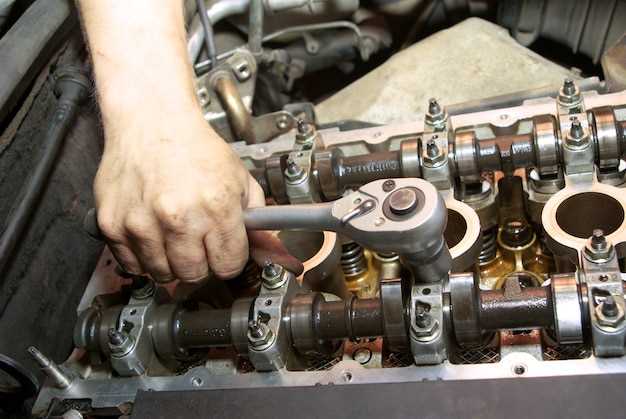
Owning a BMW is not just about the thrill of driving; it also comes with the responsibility of proper vehicle maintenance. One of the most critical components of your BMW is its transmission. A well-functioning transmission is essential for smooth gear shifting and overall vehicle performance. Neglecting transmission service can lead to costly repairs and diminished driving experience.
Maintaining your BMW transmission requires attention to detail and an understanding of specific service recommendations. Regular checks and timely fluid changes play a crucial role in extending the lifespan of your transmission. BMW vehicles often come equipped with advanced transmission systems, which means regular service is vital to ensure optimal performance and reliability. Ignoring these guidelines could result in significant issues that may affect your vehicle’s ability to perform as intended.
This article provides valuable tips for keeping your BMW transmission in peak condition. By following these guidelines, you can enhance your vehicle’s longevity and performance, ensuring a smooth ride on every journey. Prioritizing transmission service will not only save you money in the long run but also contribute to a safer and more enjoyable driving experience.
Regular Fluid Checks: How to Ensure Optimal Transmission Performance
Maintaining the transmission fluid in your BMW is crucial for ensuring optimal performance and longevity. Regular checks are essential to prevent potential issues and guarantee a smooth driving experience. Begin by consulting your owner’s manual to find the recommended fluid type and change intervals. Typically, it’s wise to check the fluid level every few months or during routine service appointments.
To check the transmission fluid, ensure that your vehicle is parked on a level surface. Start the engine and let it warm up to normal operating temperature. With the engine running, use the dipstick to assess the fluid level. The fluid should be within the designated range on the dipstick. If it appears low, you will need to add the appropriate transmission fluid. Keeping the fluid at the proper level helps maintain hydraulic pressure, which is vital for gear shifting.
Additionally, pay attention to the color and smell of the transmission fluid. Healthy fluid should be a clear red hue and should not have a burnt smell. If you notice dark or dirty fluid, it’s time for a change. Regularly replacing your transmission fluid not only enhances performance but also prevents component wear and overheating. Taking care of your BMW’s transmission fluid is a simple yet effective way to extend the life of your vehicle’s transmission system.
Understanding Common Transmission Issues: Signs You Shouldn’t Ignore

Maintaining your BMW transmission is crucial for ensuring optimal performance and longevity. Ignoring signs of transmission issues can lead to costly repairs and unsafe driving conditions. Here are some common symptoms that require immediate attention and service.
1. Slipping Gears: If your BMW unexpectedly changes gears or has difficulty staying in gear, it may indicate transmission wear. This often calls for professional care to diagnose any underlying problems.
2. Unresponsive Shifting: Difficulties in shifting, whether it’s lagging or rough transitions between gears, signal potential issues. Smooth shifting is essential for the functionality of your transmission, and any irregularities should not be ignored.
3. Unusual Noises: Grinding, clunking, or whining sounds while driving can point to serious transmission troubles. These noises often require immediate service to prevent further damage to internal components.
4. Fluid Leaks: Any signs of transmission fluid pooling beneath your vehicle are a cause for concern. Low fluid levels can lead to overheating and failure, emphasizing the need for timely maintenance.
5. Warning Lights: If the check engine or transmission warning light illuminates on your dashboard, it’s a clear indication that your car requires attention. Ignoring these alerts can lead to more extensive damage and costly repairs.
By understanding these common transmission issues, BMW owners can take proactive steps to ensure their vehicle remains in peak condition. Regular maintenance and prompt service are key to avoiding serious transmission problems.
Choosing the Right BMW Service Center for Transmission Care

Selecting the appropriate service center for your BMW can significantly impact the longevity and performance of your vehicle’s transmission. It is crucial to consider a few key factors when making your choice.
Expertise and Experience: Look for a service center that specializes in BMW vehicles. Technicians should be well-trained and have extensive experience working specifically with BMW transmissions. Certifications from BMW or specialized training programs demonstrate a commitment to understanding the unique needs of these vehicles.
Reputation and Reviews: Research the service center’s reputation within the local community. Online reviews and testimonials can provide insights into customer satisfaction and the quality of service received. A center with a solid reputation in BMW care is more likely to provide reliable and trustworthy services.
Diagnostic Equipment: Advanced technology is essential for accurate diagnostics and transmission repairs. Ensure that the service center is equipped with the latest tools and software designed for BMW vehicles. This technology enables precise identification of issues and appropriate solutions.
Warranty and Service Options: Before deciding, inquire about the warranty on services and parts. A reputable center should offer warranties on their work, ensuring that you receive quality repairs. Additionally, consider the range of services they provide for transmission care, such as routine maintenance, fluid changes, and component replacements.
Customer Service: Good communication is vital for any service experience. The staff should be friendly, knowledgeable, and willing to address any questions or concerns you may have. A service center that prioritizes customer care will help you feel confident in the maintenance of your BMW.
By carefully considering these factors, you can choose a BMW service center that will ensure proper care for your transmission, ultimately enhancing the performance and reliability of your vehicle.



